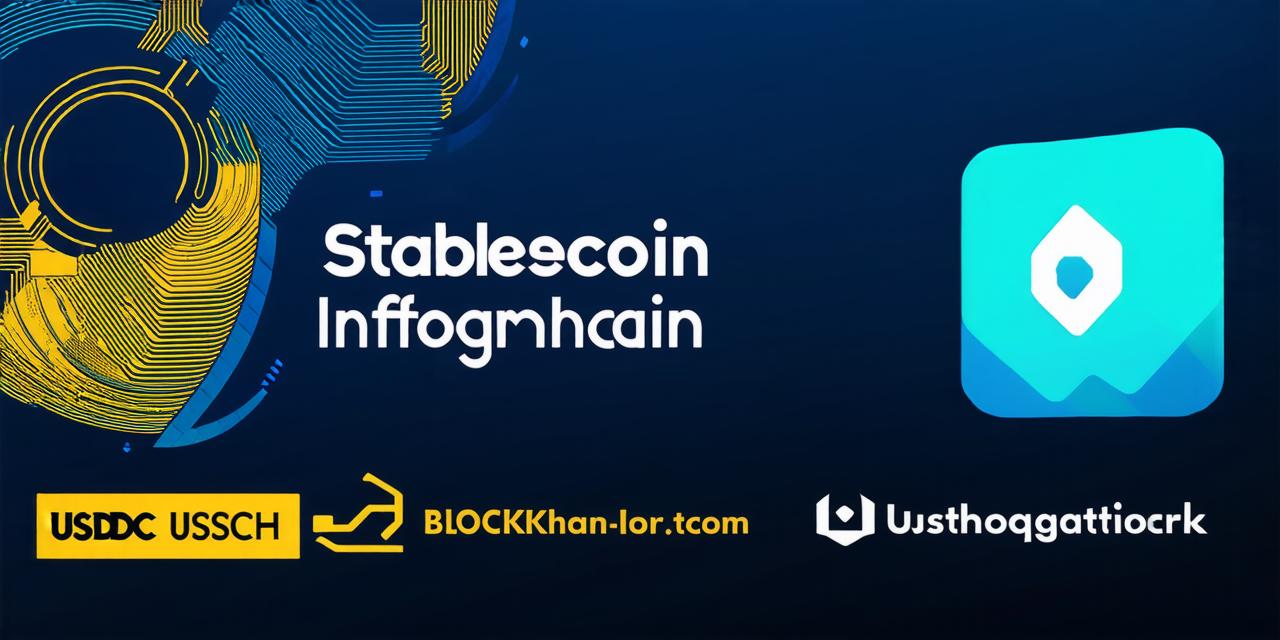Stablecoins Have Been Gaining Popularity in Recent Years as They Provide a More Stable and Predictable Form of Currency Compared to Traditional Cryptocurrencies
Among the most widely used stablecoins is USDC, which is pegged to the value of the US dollar. In this guide, we will explore the different blockchains that USDC can be stored on and which one is the best choice for developers.

Blockchain Options:
There are several blockchains where USDC can be stored, including Ethereum, Tron, Polygon, Binance Smart Chain, and Solana. Each of these blockchains has its own unique features and benefits that make it suitable for different use cases.
Ethereum:
Ethereum is the most popular blockchain platform for stablecoins, with USDC being one of the largest and most widely used stablecoins on the network. Ethereum offers a wide range of applications and tools for developers, including smart contracts, decentralized exchanges (DEXs), and dApps. However, Ethereum can be slow and expensive to use due to its high transaction fees and gas costs.
Tron:
Tron is another popular blockchain platform for stablecoins, with USDC being one of the largest and most widely used stablecoins on the network. Tron offers a fast and cost-effective platform for developers, with low transaction fees and gas costs. Tron also has a large and active developer community that provides a range of tools and resources for building dApps.
Polygon:
Polygon is a layer 2 scaling solution built on top of Ethereum that offers faster and cheaper transactions compared to the main Ethereum network. Polygon also supports USDC as one of its stablecoin options, making it an attractive option for developers who want to build dApps on Ethereum without paying high transaction fees.
Binance Smart Chain:
Binance Smart Chain is a blockchain platform built by Binance, one of the largest cryptocurrency exchanges in the world. Binance Smart Chain offers fast and low-cost transactions compared to other blockchain platforms, making it an attractive option for stablecoin developers. Binance Smart Chain also supports USDC as one of its stablecoin options, making it easy for developers to integrate this popular stablecoin into their dApps.
Solana:
Solana is a high-performance blockchain platform that offers fast and low-cost transactions compared to other blockchain platforms. Solana also supports USDC as one of its stablecoin options, making it an attractive option for developers who want to build dApps on a fast and cost-effective platform.
Choosing the Right Blockchain:
When choosing the right blockchain for USDC, developers should consider several factors, including transaction speed, transaction fees, gas costs, scalability, and developer tools and resources. Each of the blockchains mentioned above has its own unique features and benefits that make it suitable for different use cases.
For example, if a developer is building a dApp that requires fast transactions and low transaction fees, Tron or Binance Smart Chain may be the best choice. If a developer is looking for a platform with a wide range of applications and tools for developers, Ethereum or Polygon may be the best choice.
In addition to these factors, developers should also consider the stability and security of the blockchain they choose. USDC is pegged to the value of the US dollar, so it provides a more stable form of currency compared to other cryptocurrencies. However, developers should still ensure that the blockchain they choose has strong security measures in place to protect their assets.
Conclusion:
In conclusion, USDC can be stored on several blockchain platforms, including Ethereum, Tron, Polygon, Binance Smart Chain, and Solana. Each of these blockchains has its own unique features and benefits that make it suitable for different use cases. When choosing the right blockchain for USDC, developers should consider several factors, including transaction speed, transaction fees, gas costs, scalability, and developer tools and resources. Ultimately, the best choice will depend on the specific requirements of the dApp being developed.
